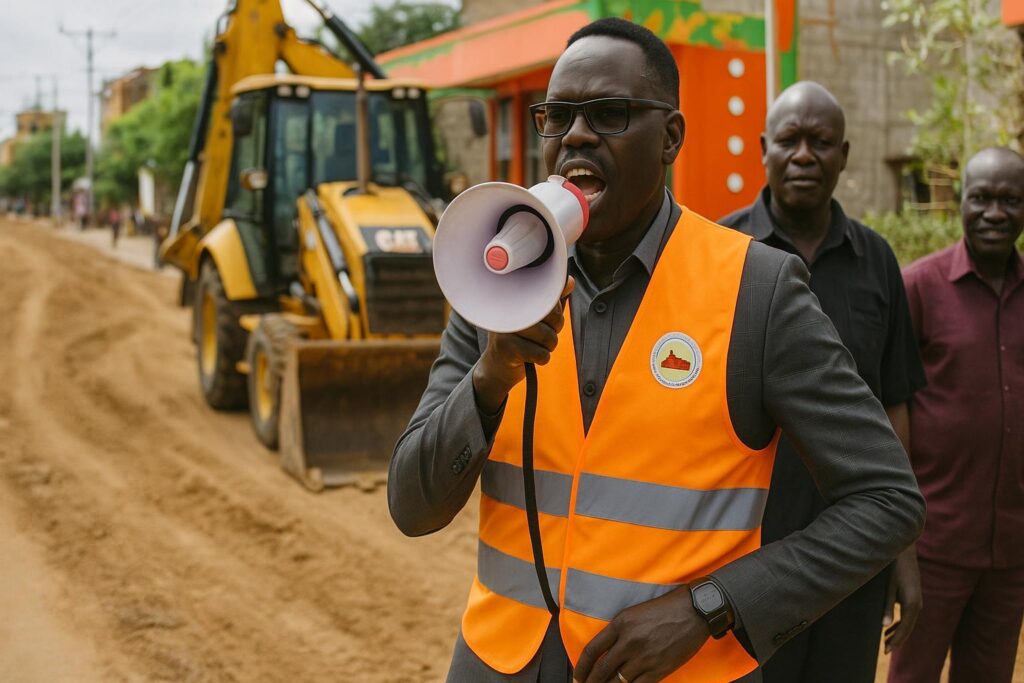Launch of 100-Day Initiative
Juba City Council rolled out a sweeping road rehabilitation drive on Thursday, starting in Hai Dar el Salaam. Mayor Christopher Swaka framed the works as the flagship of a 100-day state programme that places streets, sanitation and service access at the forefront of urban renewal.
Governor Rabi Mujung Emmanuel, whose office designed the 100-day priority list, described the campaign as evidence that “delivery can keep pace with ambition” as Juba grows. He said timely maintenance would limit future costs and open arteries crucial to commerce and healthcare.
Community Responsibility for Roads
Mayor Swaka reminded residents that freshly laid asphalt lasts only if citizens safeguard it. “The government is the people, and the people are the government,” he told the crowd, urging vendors to respect road reserves and motorists to avoid overloading that cracks surfaces.
City inspectors, he added, will issue warnings before demolishing illegal extensions that encroach on drainage channels. Officials hope early dialogue can avert costly removals and foster a culture where public assets are viewed as shared investments, not anonymous concrete.
Projected Benefits for Juba Residents
Engineers working on the Hai Dar el Salaam stretch will soon shift to Custom, Atlabara, St. Kizito, Nyakuron and Rock City. When complete, the corridor linking St. Kizito to the National Security Headquarters will give drivers an alternative to Parliament and Airport routes.
Planners predict congestion will ease as traffic disperses, slashing travel times for commuters and emergency vehicles alike. Better drainage is also expected to curb roadside flooding, improving sanitation and lowering the risk of waterborne disease in low-lying neighbourhoods.
Regional Context of Urban Renewal
The 100-day push echoes strategies adopted in cities such as Kigali, often cited across Africa for orderly streets and strict waste management. Council spokespersons say Juba wants to adapt that model rather than copy it, calibrating standards to local budgets and terrain.
Urban planner Wani Lasu observes that incremental gains can still be game-changers. “One rehabilitated junction can unlock an entire district’s economy,” he notes, urging consistent funding beyond the first 100 days to cement public trust and attract investors.


